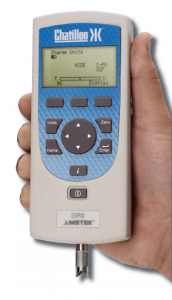 Force measurement systems are an increasingly important tool in today’s globalized supply chain by helping to maintain consistency and quality of products across geographically dispersed and diverse industries. As force is a measurable quantity on which many other measurable quantities, such as torque, thrust, and pressure, are based, force measurement systems are utilized in many applications to help determine a product’s material strength, usability, and durability. Systems are especially essential in quality control testing to ensure that products meet specified standards, including consumer safety.
Force measurement systems are an increasingly important tool in today’s globalized supply chain by helping to maintain consistency and quality of products across geographically dispersed and diverse industries. As force is a measurable quantity on which many other measurable quantities, such as torque, thrust, and pressure, are based, force measurement systems are utilized in many applications to help determine a product’s material strength, usability, and durability. Systems are especially essential in quality control testing to ensure that products meet specified standards, including consumer safety.
How Do Force Measurement Systems Work?
Force measurement devices use a transducer to convert mechanical energy into electrical signals. System devices translate applied mechanical forces, the compressive or tensile forces, into output signals on a dial gauge or digital format, assigning a numerical value to indicate the magnitude of the force. Once an output signal has been received on a force gauge, readings can be transmitted to controllers, indicators, or computers to serve as inputs to provide control over other machinery and processes or to inform system operators.
Types of Force Measurement Systems
Force measurement devices are available in a wide range of models, sizes, and capabilities. From handheld digital and mechanical force gauges to bench-top digital test stands, force measurement devices can detect measurable forces from fractions of an ounce to hundreds of tons.
Though materials testers may utilize force measurement systems to thoroughly examine mechanical properties of such materials as metals, elastomers and textiles, such as measuring the strength of materials, force measurement systems are not specifically designed to perform detailed mechanical analysis of materials. Instead, force measurement systems are employed for quality control during production or testing finished products and components where data on force is more important. For example, force measurement systems are commonly used for quality control in research and development when conducting new product design testing or for requirements verification, determination of operational forces, structural capabilities, and force distribution analysis.
Force Measurement Systems Applications
Force measurement is an important aspect used in numerous applications to ensure structural integrity, precision weighing, quality control, and consumer safety. Accurate force measurements are required to produce a wide range of products and applications. This includes testing aircraft components and structures or measuring engine thrust and torque on dynamometer stands. Systems also produce musical instruments, medical applications, and automobile components.
Force measurement systems also play an important role in the weighing industry and are found wherever precise weight measurements are necessary. From grocery stores to highway weigh stations, they are used to determine the weight of vehicles, tanks, bins, ladles, and hoppers. Force measurement is also used to weigh freight cars on railroads, in bathroom scales, and the flow of materials in a production process.
In automated process control in manufacturing facilities, force measurement systems are crucial. In rolling mills, force measurement systems control the winding tension and roll pressure for various web materials such as paper, plastic, film, filament, textile, cable, or sheet metal that are continuously pulled onto a roll or reel at varying speeds. The winding tension is the measurable force that elongates or stretches the material as it is pulled or wound during such controlled machine processes. It is the most important factor to ensure the web of material rolls evenly. Force measurement systems ensure the winding tension is a consistent, measurable force to handle the material throughout the production process.
Force measurement systems are a critical component of many manufacturing processes. Systems are commonly used to ensure products meet desired quality standards and safety in industries as diverse as construction and healthcare. Systems can be used to identify inefficiencies and waste to optimize processes such as the operation of engines, automated controls, hydraulic systems, and other mechanical systems. Force measurement systems also facilitate research and development to aid engineers and scientists in studying better and understanding the behavior of materials and structures under different loads and provide vital information that may identify weaknesses in existing structures, improve upon designs, or develop new products.
Give Worcester Scale a Call
Worcester Scale is New England’s most experienced dealership for industrial scales and precision weighing systems, featuring the latest in digital force measurement system technologies. We offer a variety of force measurement system gauges to meet the industry needs of our customers. Contact us today for more information about our advanced weighing systems products and services.


Leave a Reply